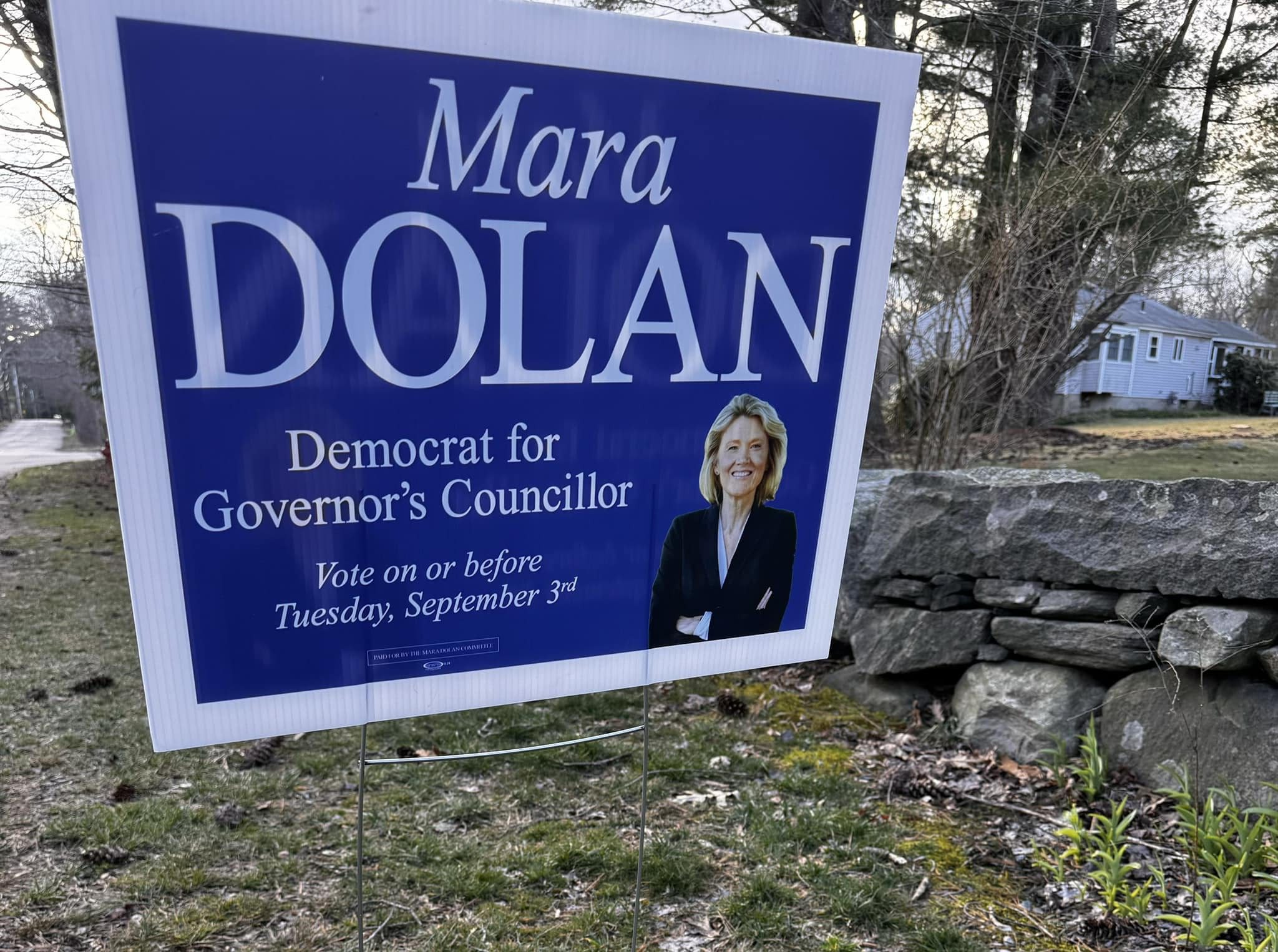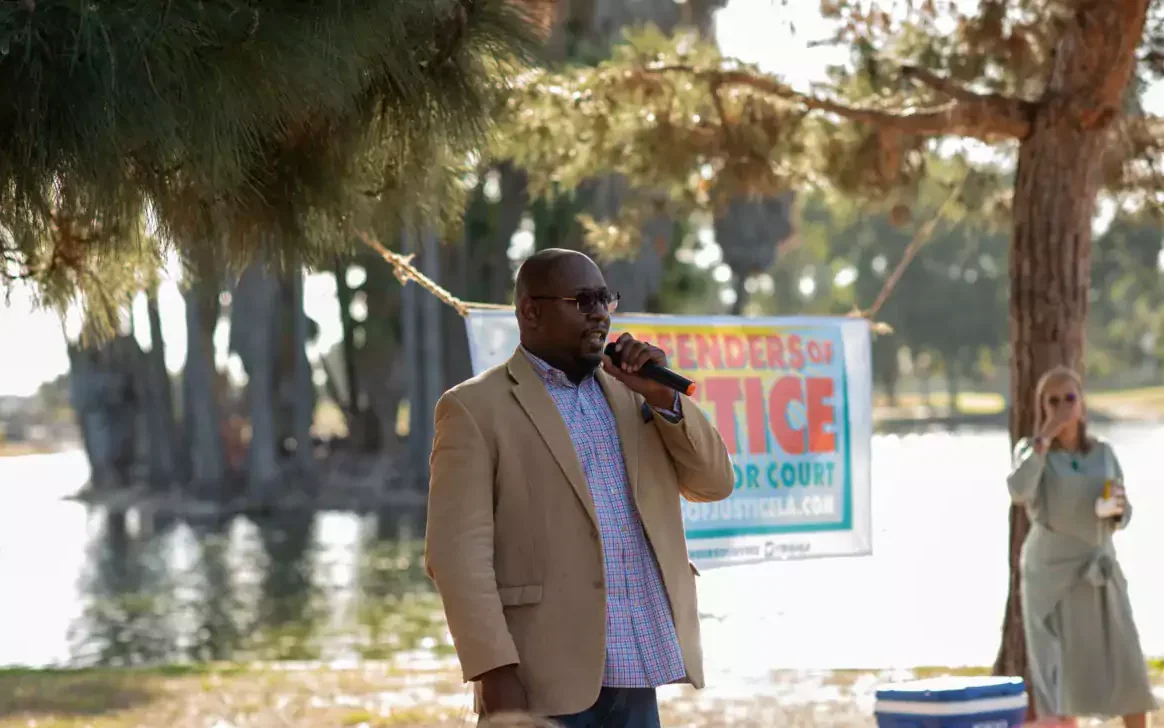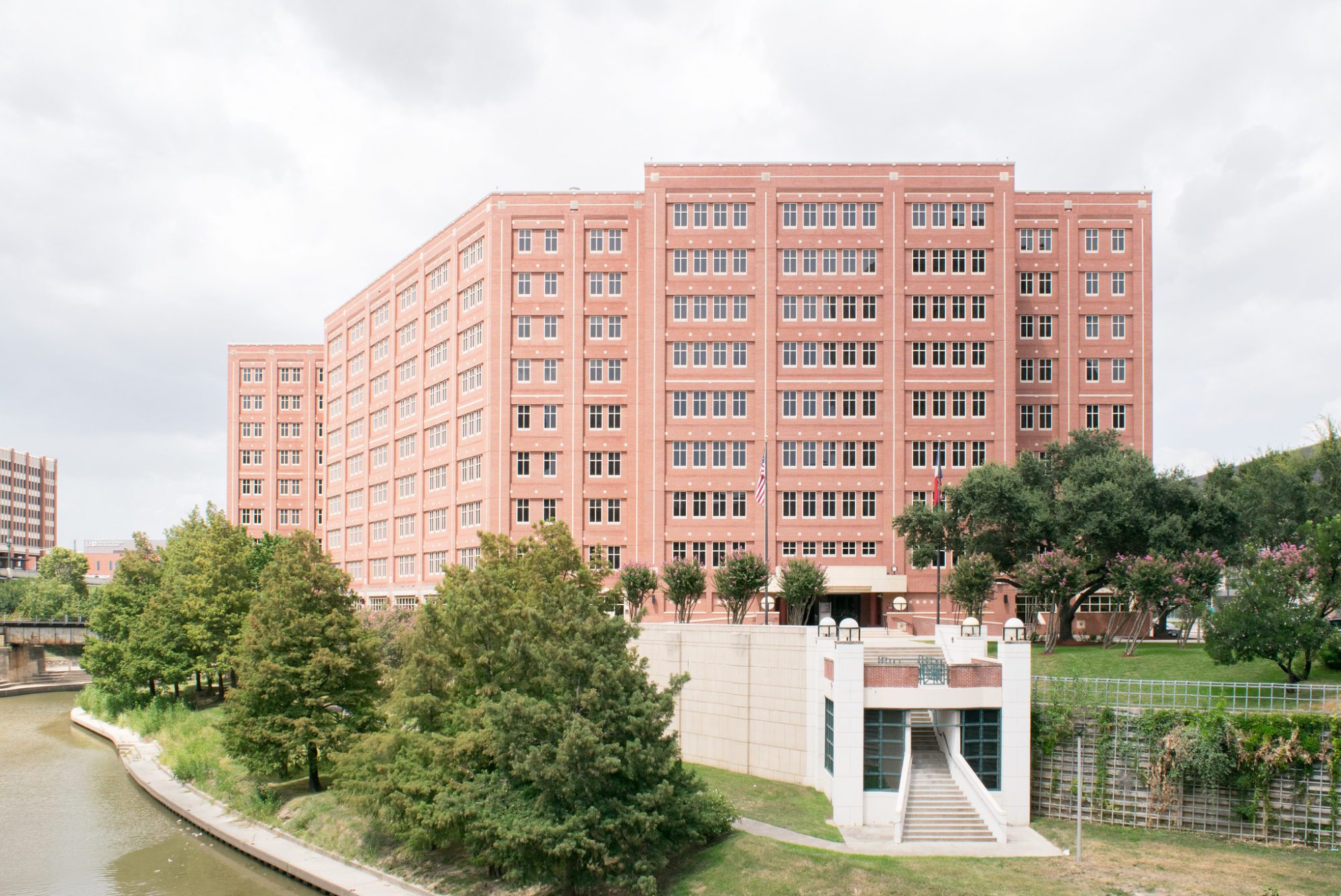The Public Defender Who Just Won Power Over Confirming Massachusetts Judges
Mara Dolan ousted a 25-year incumbent to become the first public defender to join the Massachusetts governor’s council, which she calls the “gateway to the entire judicial branch.”
| September 9, 2024

Joe Biden has named more public defenders to federal appeals courts than any president in history. Still, it remains rare for state and local judges to have that background. In Massachusetts, for instance, all seven justices on the state supreme court have worked as corporate lawyers and four as prosecutors—but none as a public defender.
Mara Dolan, a public defender in Massachusetts, wants to shake that up. Attorneys who have represented indigent defendants, she says, bring a critical perspective to the court system since they’ve experienced the ways it fails people, and the ways it compounds social inequalities. Had she lived in some other states, Dolan could have run for the bench herself. But Massachusetts does not elect its judges and justices. Instead, they’re nominated by the governor and then confirmed by an obscure eight-person elected body, the Massachusetts Governor’s Council.
So Dolan ran for a seat on the governor’s council, and last week she prevailed, ousting a 25-year incumbent, Marilyn P. Devaney.
Dolan won 52 to 48 percent over Devaney in the Democratic primary in the state’s third district, which covers parts of the Boston region. After narrowly losing in a first run in 2022, Dolan piled up endorsements this year in her rematch against Devaney, who has courted controversy and tense relationships with her colleagues since joining the council in 1999.
There is no other candidate running in the general election, so Dolan is now virtually guaranteed to win in November.
I talked to Dolan on Wednesday about why she is pushing for more professional diversity on the bench, and what she thinks she can do as a councilor. She stressed that Massachusetts judges have discretion over a broad swath of decisions—how long a sentence to impose, whether to incarcerate people with addiction issues who relapse, whether to discipline prosecutors who break the rules. And she made the case that judges too often make decisions that focus on punishment and exacerbate the state’s high racial disparities in incarceration.
Dolan will be just one of eight councilors but she hopes to use her leverage to change these mores. “The governor’s council is the gateway to the entire judicial branch,” she said.
The council has several other roles, including confirming parole board members and reviewing pardons and commutations. Dolan says she wants to use her new bully pulpit to push Governor Maura Healey, a first-term Democrat, to commute more sentences, and advocate for reforms in the legislature such as increasing the size of the parole board to process more applications.
As an institution, the governor’s council has long been decried for a lack of transparency. It has met with judicial nominees behind closed doors, and resisted streaming its meetings online, a change that Devaney pushed for. Dolan says she’s in favor of open meetings and online streaming.
The council has also drawn criticism for failing to apply any real scrutiny to nominees. During Republican Governor Charlie Baker’s eight-year tenure, the governor’s council was controlled by Democrats, yet it confirmed all but one of Baker’s 350 nominees, according to research published in The Shoestring.
In a Q&A with Bolts, Dolan said that she wants the state judiciary to offer a strong counterpoint to the staunch conservatism of federal courts, a goal that’s become common in progressive legal circles. “In a time when our federal courts are taking away our rights,” she said, “we have to make sure that our state courts uphold them.”
Your campaign centered on the case that the governor’s council needs a public defender. That’s not a common campaign slogan. Why was this an important message for you?
In Massachusetts, we do not elect our judges, but we elect the people who approve them: That’s the governor’s council. The governor’s council is the gateway to the entire judicial branch.
And we have never had a public defender in the governor’s council. That’s a perspective that is badly needed and badly overdue, particularly in light of the fact that the ratio of former prosecutors to former public defenders who are judges in our trial courts is two to one. We really need a public defender being part of the approval process for judges in order to help bring more balance.
What is it about the background of a public defender that you think should be at the table in this context?
As a public defender, my clients are among our most vulnerable, and therefore the most impacted by the decisions of the governor’s council. Because I’m a public defender, I’m on the front lines. I see what’s happening in our criminal courts every day.
I know that judges are incarcerating people for relapse all the time. I see it all the time, and whether it’s my client or somebody else’s client, it’s heartbreaking every time. The science is clear that addiction is a chronic, recurring disorder of the brain that does not respond to negative consequences. Yet that’s what we do to people in relapse. That’s what judges are doing in courts in Massachusetts and, I assume, all across the country.
Science is also very clear that incarcerating someone for a relapse is the most harmful thing that we can do. It isolates them. It takes them away from their homes, their families, their communities, jobs and homes that they’ve worked very hard to get. It takes them away from existing treatment that they’re getting. We also know that people are most likely to overdose after they’ve been released from prison, so we are doing the single most harmful thing that we could do for someone in relapse. We’ve simply got to stop doing this. Instead of punishing people for relapse, we need to figure out where there was a break in their lines of defense, against their addiction, against their substance use disorder, and make it stronger.
You mentioned the disparity between prosecutors and public defenders among criminal court trial judges. Another recent report found an even larger gap looking at superior and appellate court judges in the state. What do you think the effects of this are?
If you are a prosecutor, you never have a conversation with a defendant. You have no way of understanding who they are, what their lives are like, what their circumstances are. As a defense attorney, I have those conversations with my clients, so I have a really good understanding of where they’re coming from. That’s why, I think, you see a very punitive attitude.
We often see sentences that are overly harsh. There are certainly instances where people need to be sent to jail; there are people who pose a danger and they should be behind bars. But we often see folks who are given overly harsh sentences which cause more problems than they solve. Someone who has been a public defender understands that in a way that a prosecutor or corporate attorney never can.

I do want to say that there are prosecutors who become wonderful judges. So I’m not anti-prosecutor. I’m simply saying that someone has to have cultural competencies, someone has to understand the issues that the people who appear before them are dealing with. We need to make sure that our judiciary really understands people, and that it really is about justice and not just about punishment.
Incarceration in Massachusetts has one of the highest racial disparities in the nation. What responsibility do you think Massachusetts judges bear in this?
Judges play an enormous role. When people see racial disparities in our courts, they say, “Oh, look at that systemic racism, it’s terrible.” It’s like this abstract concept, systemic racism. But except for the decision on what crime someone is charged with, which is a decision that’s made by district attorneys, every other decision that contributes to our racial disparities is made by judges. It’s bail, whether someone is held on bail, whether they’re released on personal recognizance, whether there are conditions associated with their release. It’s sentencing, it’s terms of probation, it’s whether they’re found in violation.
All of those decisions are made by judges, and in Massachusetts, in all of those instances, if you are a person of color, you anticipate a worse outcome. We’ve got to make sure that we have judges who are ready, willing and able to tackle systemic racism with every tool that the law allows. (Editor’s note: A study commissioned by the state supreme court in 2020 showed that white defendants receive shorter prison sentences in Massachusetts; other studies have shown disparities at other stages of the system, such as gaps in the rates at which white applicants and Black applicants receive medical parole.)
What is your response to people who might say this is not what judges are supposed to be thinking about, that they’re only meant to call balls and strikes?
The ‘balls and strikes’ line was famously coined by Supreme Court Chief Justice John Roberts, who turned out to do something very different from what he said that he would do. It is important for judges to follow the law, but judges interpret the law, and the interpretation of the law comes from who they are and what their values are.
For example, we’ve got to make sure that we have judges who have a reasonable interpretation of the Second Amendment so that we can enact, uphold and enforce sensible gun safety laws. Someone can say, it’s just going to be balls and strikes and I’m just going to follow the law, but at some point, they are going to have to make a decision based on their values.
Their values will impact how they interpret the law, and their experience, or their lack of experience, will have a profound impact on their ability to understand the person who appears before them and how insightful they are. This is critically important.
I’d like to turn to the role of the governor’s council specifically: The body does not have the power to choose judges; it can only review the governor’s nominations, and it does that on an individual basis. What authority does that give you to push this agenda?
It has to do with the conversation that you have with nominees and what they say on the record during their confirmation hearings. Governor’s councilors don’t just vote yes or no. They also talk with nominees. So I can share with them what I know and, because the hearings are public, get the nominees on the record as to these positions and then hold them accountable if they fail to uphold the standard that they said they would.
For example, I’m very concerned about the failure of prosecutors to disclose potentially exculpatory evidence. There was just a big decision handed down by the Massachusetts Supreme Judicial Court, Graham, which found that the Hampton County DA breached its duty to disclose potentially exculpatory evidence to defendants. My question is, where were the judges while these breaches of duty were taking place? Why were judges not ordering prosecutors to turn over potentially exculpatory evidence?
Do you also think you could shape nominations before nominees get to the council?
Yes, I do. I think that when you raise standards, you are signaling to potential nominees that they need to reach that standard. And that does have a powerful influence.
In Massachusetts, the governor appoints a judicial nominating commission to review applications, and this commission then recommends people to the governor. By the time they get to the governor’s council, the vetting process has been pretty thorough. So it’s about making sure that those nominees are upholding the high standards that the people of my district want them to.
We’ve talked a lot about the governor council’s role in reviewing judicial nominees. One other important role is that it reviews pardons and commutations issued by the governor. Those have been rare in Massachusetts. Are you hoping to see or push for shifts on how these matters are handled?
Governor Healy has recommended more people for pardons than any governor in the modern era, and is to be commended for that. But in the last 14 years, we’ve had a total of four commutations, only four, and we haven’t seen any recommendations for commutation from the current governor. I would absolutely push for more commutations: Commutations can correct an unduly harsh sentence. There may be someone who has already served a number of years, is rehabilitated, does not pose a danger, is ready and willing and able to be released and to lead a good life.
This interview has been edited for length and clarity.
Sign up and stay up-to-date
Support us
Bolts is a non-profit newsroom that relies on donations, and it takes resources to produce this work. If you appreciate our value, become a monthly donor or make a contribution.




